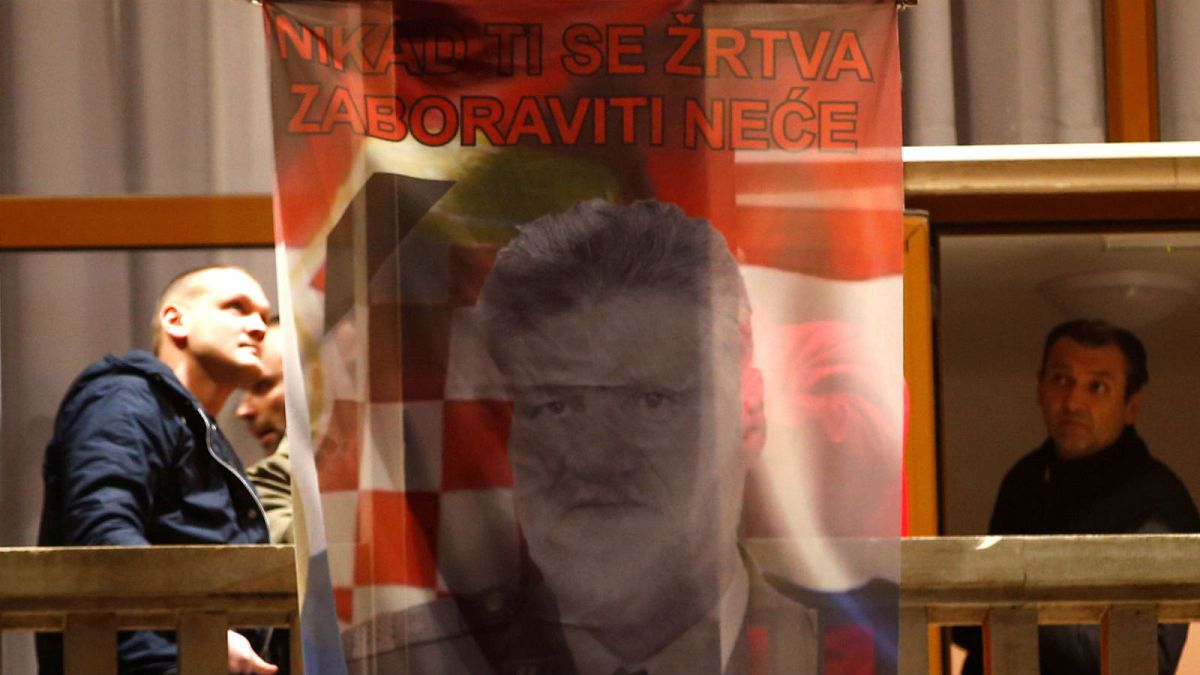Unless governments in the Western Balkans, and their EU and US partners, redouble their efforts to bring those responsible for wartime crimes to justice, there is a danger that history will repeat itself, writes Lydia Gall
By Lydia Gall
Earlier this week, the International Criminal Tribunal for the former Yugoslavia (ICTY) delivered its last appeals judgement in a swirl of drama. Slobodan Praljak, a wartime commander of Bosnian Croat forces, killed himself in the courtroom, ingesting alleged poison as the bench read out its judgement confirming his conviction and 20-year sentence for war crimes and crimes against humanity.
Praljak’s death follows last week’s conviction and life sentence for the Bosnian Serb general Ratko Mladic, whose defense team tried to delay the delivery of his verdict because of his reported ill health. But these last ditch efforts of desperate men should not distract from the role of the ICTY in bringing much-needed justice to victims, or the dire need for more truth and justice at local and regional levels in the Western Balkans so the region can really come to terms with the past.
The ICTY has been a success in prosecuting key suspects, including Mladic, and establishing individual responsibility for horrific crimes committed during the wars in the Balkans. Still,its reach has naturally been limited, targeting a relatively small number of suspects, mostly those who ordered the crimes, not necessarily those who actually pulled the trigger. Trials in national courts are critical to complement this work and address the gap by holding those who directly committed the acts and mid-level commanders to account.
Unfortunately, war crimes prosecutions over the years in the Balkans have progressed slowly. Only 179 judgments have been delivered in Bosnia since 2005, and 124 in Serbia since 2003. Despite EU- and US-brokered efforts and regional cooperation initiatives to facilitate prosecutions, few indictments have reached trial and most defendants have been low level.
There has been limited progress on wartime rape and sexual violence cases, with many victims, including in Bosnia-Herzegovina, living in the same communities as their attackers.
Governments in the region have not made war crimes prosecutions a political priority, resulting in inadequate funds to support bringing war criminals to justice. In Kosovo, war crimes prosecutions have been plagued by witness protection problems, and a new EU-backed court aimed at addressing those issues has been slow to get started.
Governments in the Balkans also have a shameful habit of embracing war criminals as heroes, playing on nationalist sentiments, which contributes to further division and sectarianism.
Following Mladic’s conviction for genocide, crimes against humanity, and war crimes, Milorad Dodik, president of Republika Srpska, Bosnia’s Serbian entity, celebrated Mladic as a national hero who fought for the freedom of the Serbian people. Serbian President Aleksandar Vucic made similar statements.
Despite the ICTY ruling in 2011 that the massacre of 8,000 Muslim boys and men in Srebrenica during the war constituted genocide, the Serbian government denies it. So does the government Republika Srpska.
A lack of political will, including from the EU and US, to look beyond a narrow focus of cooperation with the ICTY and to deal with the horrors of the past and speak the truth about the war, is not something that just impacts the victims. It is polluting the minds of the next generation.
Belgrade’s failure to recognize and take responsibility for Serbia’s role in some of the worst war crimes committed in Europe since World War II has resulted in a distorted understanding of the war by children and young people. The Serbian population is bombarded with nationalist populist messages from the highest political levels who describe war criminals as national heroes.
Children who were born after the Balkan wars are taught different “truths” depending on their ethnicity. In Bosnia and Herzegovina, this is blatantly obvious through the discriminatory “two schools under one roof” system in which Croat and Bosniak children in the Federation attend separate classes at different hours of the day and in which curricula and content vary depending on ethnicity. In Republika Srpska, the education for Serbian children are in line with Dodik’s and Vucic’s nationalist populist rhetoric.
Such a polarized political environment highlights the urgency of meaningful region-wide truth and reconciliation efforts alongside justice in domestic courts.
In 2008, a coalition of non-government groups, lawyers and activists brought an initiative to uncover facts about the war crimes and other serious human rights violations in the former Yugoslavia from 1991 to 2001. With two signature campaigns, in 2011 and 2017, yielding about 600,000 signatures, the aim is to gather enough momentum to convince political leaders in the Western Balkans and the EU to sign an agreement to establish the commission. The toxic reaction to the Mladic verdict in Serbia and Republilka Srpska is yet another reminder of not only why their efforts are so important but also the huge challenge in building the political consensus to bring them to fruition.
Unless governments in the Western Balkans, and their EU and US partners redouble their efforts to bring those responsible for wartime crimes to justice and make a commitment to establish an independent commission to unravel the truth about the region’s bloody past, there is a danger that history will repeat itself.
Without these combined efforts, it’s not hard to imagine a future in which resurgent populist nationalism in the region and heightened tensions could spill into violence. The governments in the region and their EU and US partners have a duty to the people of the Western Balkans to take the necessary legal and policy steps to turn away from this a dangerous path.
Lydia Gall is the Balkans and Eastern Europe researcher at Human Rights Watch
The views expressed in opinion articles published by Euronews do not represent our editorial position. If you want to contribute to our View section, email ideas to: view@euronews.com
